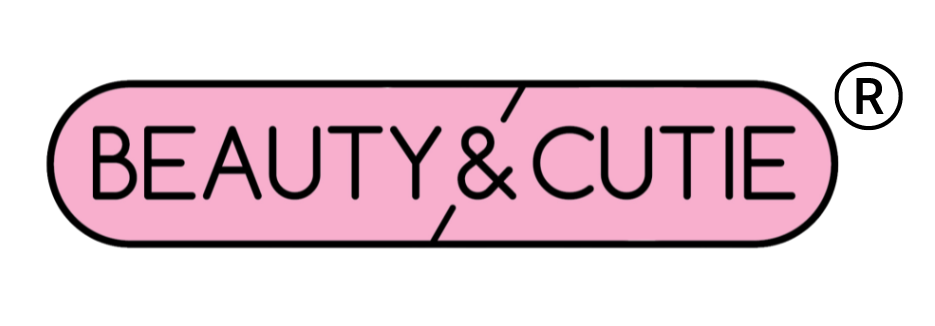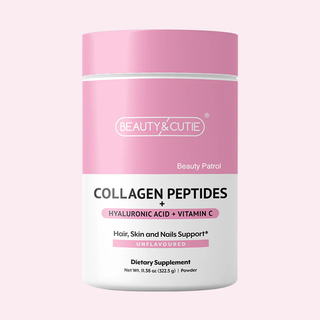Hair loss can be a frustrating and concerning experience. While there are many factors that contribute to hair loss, including genetics and stress, diet is another essential factor to consider. One food group that often gets blamed for hair loss is sugar. But does sugar really cause hair loss? In this article, we will explore the relationship between sugar and hair loss and give you 5 essential things to know about sugar and its impact on your hair.
What Happens When You Have a High Sugar Consumption?
When you consume sugar, your body breaks it down into glucose, which is then used for energy. However, when you consume excessive amounts of sugar, your body produces more insulin to handle the excess glucose. This can lead to insulin resistance, where your cells become less responsive to insulin, and your body has difficulty regulating blood sugar levels.
High levels of insulin in the body can also lead to inflammation, which has been linked to hair loss. Inflammation can damage hair follicles and disrupt the growth cycle, leading to hair thinning and eventual hair loss. In addition, high blood sugar levels have been linked to oxidative stress, which can damage cells, including hair follicles. So, while sugar itself may not directly cause hair loss, consuming too much sugar can contribute to factors that do.
Does Sugar Cause Hair Loss?
Here are 5 things to know about sugar and its impact on hair loss:
- Excessive sugar consumption can lead to insulin resistance and inflammation, which are linked to hair loss.
- High levels of insulin in the body can damage hair follicles and disrupt the growth cycle, leading to hair thinning and eventual hair loss.
- High blood sugar levels have been linked to oxidative stress, which can damage cells, including hair follicles.
- Sugar can also disrupt the hormonal balance in the body, leading to an increase in androgens, which can trigger hair loss in both men and women.
- Reducing sugar consumption and maintaining a balanced diet can help promote healthy hair growth and minimize the risk of hair loss.
While sugar may not directly cause hair loss, consuming excessive amounts of sugar does have a negative impact and can lead to insulin resistance, inflammation, and oxidative stress, which are all linked to hair loss. It's important to maintain a balanced diet and reduce sugar consumption to promote healthy hair growth and minimize the risk of hair loss.
Other Diet Factors That Can Contribute to Hair Loss
While sugar consumption is one factor to consider when it comes to hair loss, there are other diet factors that can have an impact as well. For example, a diet lacking protein, iron, or vitamin D can lead to hair loss. On the other hand, a diet rich in these nutrients can promote healthy hair growth. Omega-3 fatty acids found in fish and nuts have also been shown to improve hair health and reduce hair loss.
It's important to remember that hair growth is a complex process and is influenced by a variety of factors. While diet is one piece of the puzzle, genetics, stress, and other lifestyle factors can also play a role. If you are experiencing hair loss, it's always a good idea to consult with a healthcare professional to determine the underlying cause and develop a personalized treatment plan.
5 Sugary Foods To Avoid
If you're looking to reduce your sugar consumption and promote healthy hair growth, here are five sugary foods to avoid:
- Sugary Beverages - One can of soda contains up to 40 grams of sugar, which can lead to insulin resistance and inflammation.
- Candy - Most candy is packed with sugar and lacks the nutrients that promote healthy hair growth.
- Baked goods - Cookies, cakes, and pastries are often loaded with sugar and can contribute to high blood sugar levels.
- Energy drinks - These drinks often contain high levels of sugar and caffeine, which can contribute to hair loss.
- Breakfast cereals - Many breakfast cereals are marketed as healthy but can contain high levels of sugar, which can lead to hair thinning and loss.
Consuming excessive amounts of added sugars can lead to insulin resistance, inflammation, and oxidative stress, which are linked to hair loss. To reduce sugar consumption and promote healthy hair growth, avoid sugary beverages, candy, baked goods, energy drinks, and breakfast cereals.
Tips For Reducing Sugar Intake and Promoting Hair Health
Reducing your sugar intake is easier said than done, but it's a critical step in promoting hair health. Here are some tips to help you get started:
- Read Labels - Always read the labels on packaged foods and look for hidden sources of sugar such as high-fructose corn syrup.
- Choose Whole Foods - Opt for whole foods like fruits, vegetables, and whole grains that are naturally low in sugar and high in nutrients.
- Cook at Home - Cooking your own meals allows you to control the amount of sugar and other unhealthy ingredients that go into your food.
- Avoid Artificial Sweeteners - Artificial sweeteners can have negative effects on hair health and overall health. Try natural sweeteners like honey or maple syrup instead.
- Stay Hydrated - Drinking plenty of water helps to flush out toxins and keep hair hydrated, which can promote healthy growth.
By reducing your sugar intake and making healthy lifestyle choices, you can promote healthy hair growth and minimize the risk of hair loss. Remember, hair health is a reflection of overall health, so taking care of your body is the best way to take care of your hair.
Conclusion
In conclusion, reducing sugar intake is crucial to promoting healthy hair growth and preventing hair loss. By avoiding sugary beverages, candy, baked goods, energy drinks, and breakfast cereals and opting for whole foods, you can provide your body with the nutrients it needs to maintain a healthy scalp and hair. Additionally, cooking at home, avoiding artificial sweeteners, and staying hydrated are all beneficial steps you can take to achieve optimal hair health. Remember, a healthy scalp is a foundation for healthy hair, so taking care of your body and making smart lifestyle choices can help you achieve luscious locks for years to come.
Final Thoughts
Radiate beauty from the inside out with Beauty and Cutie’s collagen powders. Designed to nourish your hair, skin, and nails, our innovative formula promotes optimal cell regeneration for healthier tresses and a glowing complexion. Feel confident and vibrant every day with Beauty and Cutie’s transformative solution!
Sources
- https://www.verywellfit.com/guess-how-much-sugar-is-in-a-can-of-soda-2506919
- https://www.eatthismuch.com/food/nutrition/chocolate-pastry,563935/
- https://www.verywellfit.com/candy-nutrition-facts-calories-and-carb-counts-4117488
- https://www.health.harvard.edu/heart-health/the-sweet-danger-of-sugar
- https://medlineplus.gov/bloodglucose.html
- https://skinkraft.com/blogs/articles/diabetes-and-hair-loss
*These statements have not been evaluated by the Food and Drug Administration. This product is not intended to diagnose, treat, cure or prevent any diseases.


